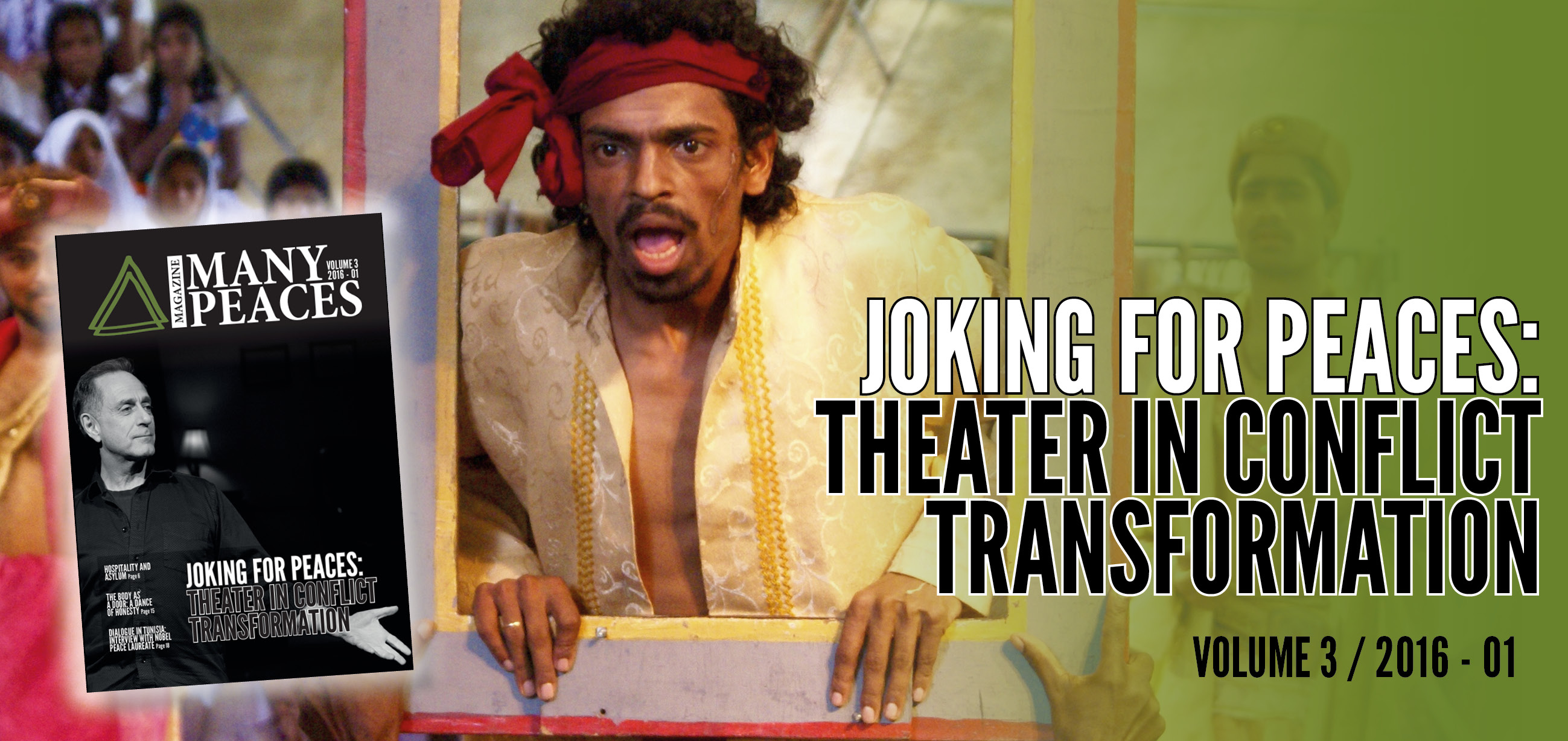Dear peace colleagues and friends,
It is a great honour for me to be asked to write the “greeting note” for Volume 3 of the Many Peaces magazine and also to know that Theatre for Living “lives” at the UNESCO Peace Studies Program, University of Innsbruck.
Stefan Freytag and Adham Hamed, who made the invitation, wanted to know what theatre is to me. Theatre is a primal language, as my dear mentor, friend and colleague Augusto Boal used to say, that “belongs to all of humanity.” What insight lies underneath this statement?
Art (and theatre is one art form) is the psyche of the community. In the same way as our bodies are made up of cells that comprise the living organism of the body, communities are made up of people that comprise the living organism of the community. Individuals need to express themselves in order to be healthy. So do communities. The way communities used to express themselves was through song, dance, drama – a language through which the psyche of the living community could find expression. Today we buy music, books, theatre, dance, visual art; as consumers we pay strangers to tell us stories about strangers. When do we get together as living communities to use this primal language to tell our own collective stories? To express our collective hopes, dreams and also our nightmares? The answer is we don’t and if we do, it is extremely rare. In the same way as individuals get sick if they keep things bottled up, communities get sick. The proof of that, I believe, is unfortunately, everywhere we look.
Theatre for Living (TfL) has grown from Boal’s Theatre of the Oppressed (TO), my own life long interest in physics and how I have understood physics through the generosity of numerous Indigenous communities, primarily in British Columbia, Canada, and in particular the Gitxsan Nation in North Western BC. What? Understanding physics via Indigenous communities? Yes – because physics is not new knowledge, it is ancient knowledge expressed through new, technical language. Physics teaches us that everything in the universe is interconnected. This understanding is what challenged and inspired me to transform the TO work I was doing into a new form; one that embraced the validity of all sides of a story, even when we disagree profoundly with one or more of the perspectives. This is a theatrical way out of cyclical violence (in all its forms) and into “many peaces.” TfL is an attempt to create aesthetic space where true transformational dialogue can take place – not one side trying to convince, conquer or defeat the other.
I’ve been so deeply impressed and inspired by the people (students and staff) that I have met and worked with at the University of Innsbruck Peace Studies program. People seeking a new way, a new path, a paradigm shift. The urgency for this new way is building across the planet as we confront the realities of climate change and how the addiction to economic growth over and above human and environmental rights has led to a terrible imbalance in the ecology of both the earth and also humanity. This imbalance has led and continues to lead to layer after layer of destructive conflict. Somehow, we must find ways to transform this destructive conflict into a creativity through which we find balance once again; balance for the earth and balance for humanity. Truly equal human rights, education, health, and opportunity.
A healthy ecology has room for diversity. The Peace Studies Program and more importantly the people who inhabit the program are one way (there will and must be many) to rise to this challenge. The authors and articles in this Volume 3 give insight into various projects that share this transformative desire.
Thank you all for your diligent work – and I wish you inspired reading, dear reader.

